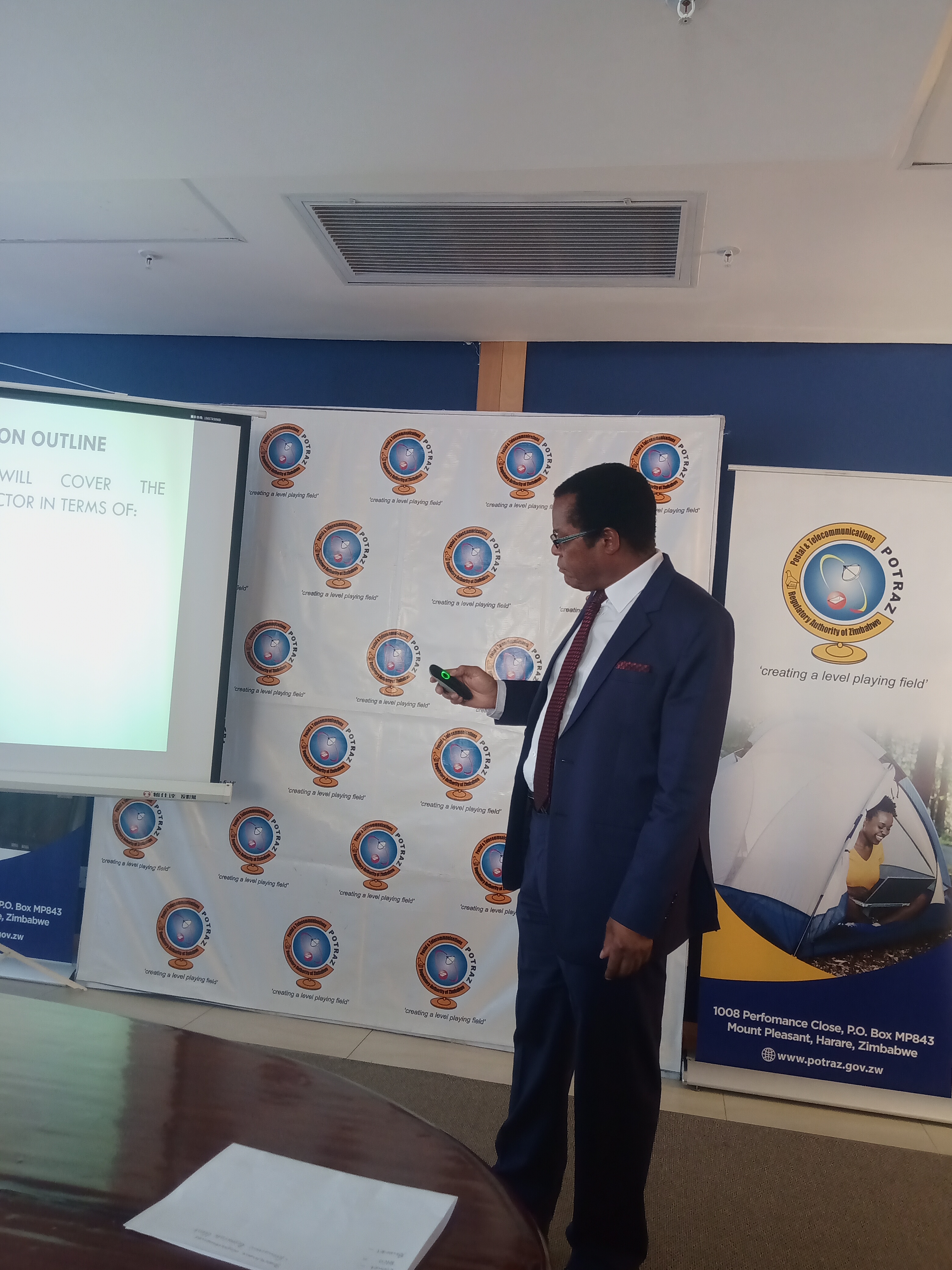Dr. Gift Machengete, the Director-General of the Postal and Telecommunications Regulatory Authority of Zimbabwe (POTRAZ) has presented the sector performance report for the third quarter of 2019 that had mixed fortunes for the various stakeholders.
Presenting the report at the company’s headquarters, Dr. Machengete highlighted various trends that characterised the postal and telecommunications sector in the third quarter of 2019.
Chief among the interesting developments was the marginal growth in fixed, mobile and internet subscriptions. This was coupled with a growth in national voice traffic vis-à-vis decline in international voice traffic.
Dr Machengete said some of the key highlights for the sector were the growth in internet and data usage; huge decline in postal and courier volumes; significant growth in overall revenues vis-à-vis rising operating costs; and marked growth in capital expenditure.
Whilst penetration rates for other services increased, it emerged that the fixed tele-density remained at 1.9%. The fixed tele-density has remained at 1.9% since 2017.
On active mobile subscriptions, all the mobile operators recorded growth in active mobile subscriptions. However, NetOne recorded the highest growth rate of 10.6% whereas Telecel and Econet recorded growth rates of 2.3% and 2.2% respectively.
On data and Internet subscriptions, there was a general decline in fixed internet and data subscriptions. The decline was attributable to the general increase in tariffs for fixed data packages hence a number of households discontinued their monthly fibre subscriptions. This became the first quarter, since 2016, to record a decline in active fibre subscriptions.
“The 3.2% growth in mobile data and internet usage, however small, was an improvement from the 8.2% decline recorded in the second quarter of 2019. The popular social media sites in Zimbabwe, WhatsApp, YouTube, Facebook and Twitter contributed 39.1% of total internet and data usage traffic.
“A trend of growing revenues amidst rising operating costs has been observed across all the sub-sectors. The growth in revenues is attributable to the review of tariffs in line with cost of service provision which is attributable to the inflationary pressures in the economy,” Dr. Machengete added.
A significant growth in capital expenditure was recorded across all telecommunications markets. Investment by the fixed network was mainly in national transmission. Mobile operators invested in national switching, mainly the upgrading of the core network and radio access network; whereas internet access providers increased their bandwidth capacities.
Focusing on mobile money subscriptions, Dr Machengete said the total number of active mobile money subscriptions grew by 2.2% to reach 7,190,153 from 7,032,330 recorded in the second quarter of 2019.
There was significant growth in the volume and value of mobile money transactions. He said the growth in the value of transactions is attributable to the general increase in the prices of goods and services coupled with cash challenges as well as the growth in the number of users.
Dr. Machengete emphasised that the performance of the industry will depend on the general economic environment in the country. Thus the economic environment impacts the sector through service demand and consumption levels, operating costs and investment levels. Given the current inflationary pressures in the economy, operating cost containment will be even more crucial for operators to maintain profitability.
“The growth of operating costs poses a threat to operator viability and puts pressure on prices. This may in turn impact demand for postal and telecommunication services as consumers reduce usage. The current power supply challenges have negatively affected the sector in terms of service provision, lost potential revenue and increased costs brought about by the use of alternative power sources like generators, in an environment of rising fuel costs.”
It emerged that the use of Over-the-Top services, such as WhatsApp, Skype and Viber, is expected to grow as consumers cut back on communication expenditure.
On the other hand, Data and internet services will continue to drive industry growth. However demand levels for fixed broadband at household level may be negatively impacted by rising prices.
Mobile money services are expected to continue playing a key role of bridging the financial divide by providing safe, secure and cheap financial services in areas where many Zimbabweans have no access to formal banking systems. Volumes of mobile money payments are expected to maintain an upward trend due to the significant increase in the number of financial services offered on mobile money platforms.
